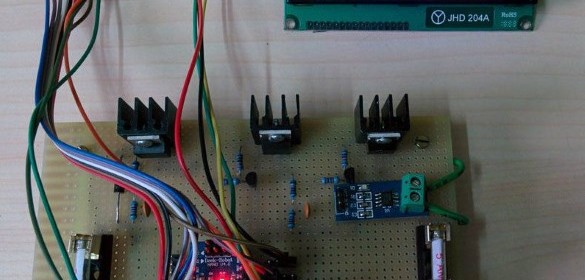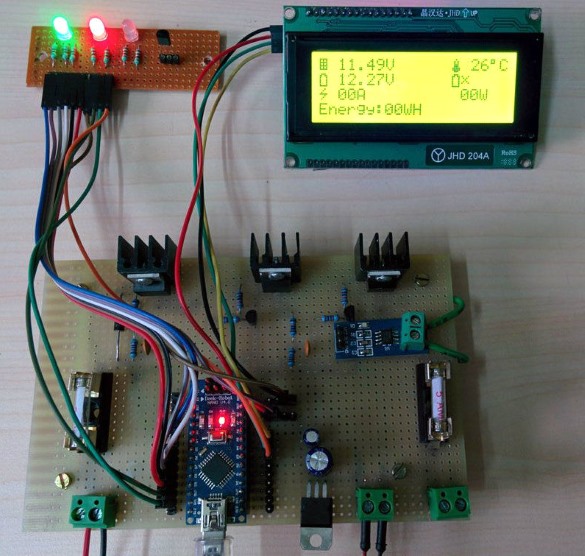Arduino solar charge controller and energy monitor

Solar charge controller is a key component in any photovoltaic system that uses batteries to store energy. The main function of solar charge controller it to reduce the overall system maintenance and prolongs the battery life by regulating the charging voltage and current coming from the solar panels. It also protects the battery from both overcharging and deep discharging. Today, most of the solar charge controllers utilize the Pulse Width Modulation (PWM) technique to adjust the charging voltage and current according to the charging status of the batteries. For instance, if the battery gets closer to fully-charged condition, the amount of solar power delivered to the batteries is lowered by lowering the duty cycle of the PWM signal. This approach has lesser stress on batteries during charging and thus extends their battery life.
Debasish Dutta’s new DIY Arduino Solar Charge controller is also based on the PWM approach. His design uses Arduino for PWM generation and other measurements and control features. The Arduino Solar controller uses a simple resistor-divided-network to construct a voltage feedback system to sense the battery terminal voltage. The feedback signal is then used to adjust the duty cycle of the PWM signal. His charge controller also implements an energy monitor system, which is really a cool feature. A 4×20 character LCD is used in the project to display the key parameters like voltage, current, power, energy, and ambient temperature. An automatic load control feature disconnects the load from the battery to prevent it from deep-discharging.
